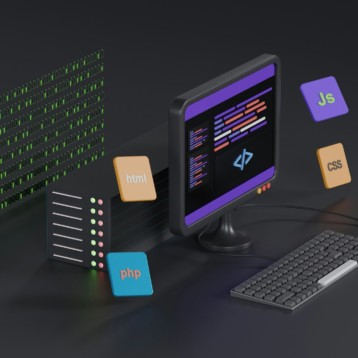
So you want to scale DevOps while maintaining software quality? You have to understand the basics first. The qualities of a good software can be well illustrated by a software triangle divided into three parts. Before diving into actionable tips, here are the main features of a good software you should keep in mind.
- Operation: These features ensure good functioning of a software. It includes elements like correctness, usability, integrity, and reliability.
- Transition: These features allow movement of a software from one platform to another. Features to do with compatibility and APIs. They include portability and interoperability. Interoperability is the ability of computer programs to interact.
- Revision: Revisions have a great impact when scaling DevOps. It has factors ranging from maintenance, testing, modularity.
Now that you know the basics of a good software, you have to increase the speed of your operations. In cloud computing, for example, s3 best practices will help you enhance simplicity in data retrieval during the scaling process.
Use these 7 tips to maintain your software quality.
- Keep Things Simple: Users will need a software that is simple to use. You can achieve this by adding a good user interface. Also, simplicity makes it easy for experts to review your code. If you have an external expert opinion, you will get feedback on areas to improve on.
Automation will also help you achieve simplicity. You can use tools that will detect unnecessary repetition. The right tools will help you reduce bulky work, which may make a software more complex.
Old technology will always complicate things. In our postmodern world, there are drag and drop processes that make complex things simple.
- Have Accurate Data: What can you achieve by making data-driven decisions? Collecting data can have a significant impact on software quality. The facts are, the more accurate your data is, the more impact it has on the software quality.
Here is a quick example. Imagine basic software data like a heat-map. Heat maps may highlight the most used parts of an object. If you know parts of your software that has a lot of traction, you can focus more on developing them. Similarly, you can study why other areas aren’t visited.
The use of Artificial Intelligence can also help you make data-driven applications. It’s possible to use data to predict the future. If one trend has a predictable trend, you can extrapolate a curve to make future predictions. Then use those findings when scaling DevOps.
- Build It For Users
Evidently, different DevOps tools have checklists that will help you make good software. However, most coders and developers focus on meeting these requirements. That shouldn’t be the case. Instead, DevOps developers should put their users in mind.
It’s the implementation that matters. Does every feature on your website will help your users directly? All in all, you depend on your users. They are the people who will give your product acceptability.
When you build a software for users, it implies that the software will meet its intended purpose. The more it’s able to solve problems, the higher the quality of your software.
- Meet Code Quality Standards: The Consortium for IT Software Quality develops International standards for software quality. When scaling DevOps, you should focus on meeting these international standards. Fortunately, you won’t incur any cost by joining this organization.
To meet International standards, you have to meet good coding practices. For example, pay attention to buffer flows, dynamic coding and loop computations. In addition, they have architectural standards you have to meet. Once you do this, you can be confident that your DevOps strategy will be accepted by the international market.
- Practice Continuous Testing.
In 2016, there were over 700 million attempts to infect devices through vulnerable software. In 2019, however, the numbers have changed. But we can’t dismiss the statistics easily.
Doing penetration testing will help you improve security when scaling DevOps. In the current situation, users want nothing short of perfection. It’s only through testing that you can be perfect. Test the performance, functionability, user interface, and APIs.
- Follow On Assessment: Granted that you are scaling Devops, you have to follow up. Every assessment and audits come with recommendations. Review the action plans, and follow up to see if they are working. For instance, you can do a self-assessment by asking yourself the following questions.
- Is the technology and automation efficient?
- Did the strategy meet expected outcomes?
- Are there more ways to automate the process?
- Focus On Reliability And Efficiency: Despite being only quality characteristics, the two factors are vital in the Devops culture. There is no point in scaling something that isn’t reliable. Let the project have maximum uptime. On efficiency, the project should beat other existing technology. It should also help to cut on costs.
All these rules can be narrowed down to one fundamental rule. That a good software achieves what’s meant for. So long as you achieve your main objective, adjusting other quality aspects will be much easier.
Devops is the present, and it’s future is good. So if you want to scale Devops, use these 7 tips to maintain software quality.










